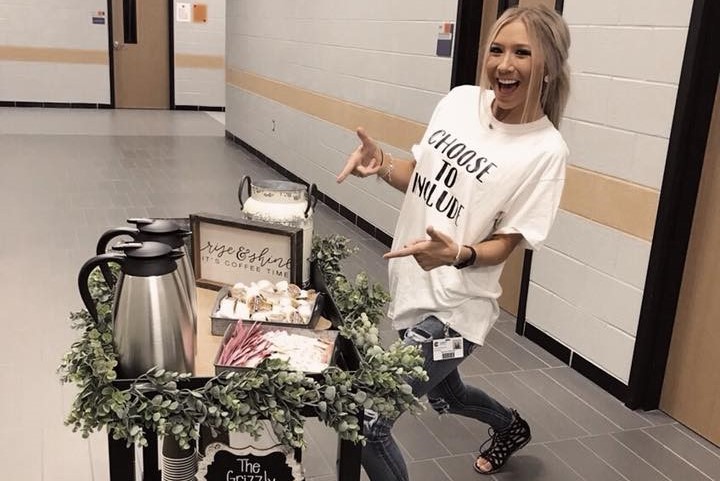A first-year special education teacher in Texas is getting a lot of attention for a creative idea she came up with to help students overcome their disabilities to practice communication and other life skills.


A first-year special education teacher in Texas is getting a lot of attention for a creative idea she came up with to help students overcome their disabilities and to help them learn communication and other life skills.
Recent Texas A&M graduate Shelby Winder took a portion of her modest starting salary to buy a coffee cart for special education students in her Life Skills class at Grand Oaks High School in Spring, Texas. The idea is to allow students to run a coffee bar as a small business, which they dubbed “The Grizzly Bean,” while helping students strengthen communication and social skills, Rare reports.
Texas author and life coach Chris Field posted about Winder’s efforts on Facebook.
The coffee cart “would allow her students to walk around to each of the teachers and staff in the school and take their orders and then deliver their coffee to them on Fridays. Most importantly, this would allow the students to practice their social skills, communication, working through their shyness, and even learning how to run a simple business by calculating their expenses and profits,” Field wrote, adding that he was so impressed he helped repay the teacher for her expenses.
“Her students have now been at this a couple weeks … and she says they are absolutely loving it,” he wrote. “It’s obviously a great teaching tool and one that will give them skills and lessons to carry far beyond this school year.”
The practical life skills of counting and collecting cash are only part of a bigger message Winder is hoping to convey, according to Field.
“One of the coolest parts of this story is that Shelby has the goal of using some of the profits from her class’s coffee business to actually provide funds for another school to start the same project,” he wrote. “Then they would do the same, and they would do the same, and so on and so forth. How cool is that?!”
Winder planted a seed that’s growing into something bigger, both through new habits of communication and socialization for students and new school traditions motivated by compassion and understanding for students with special needs. Those habits and traditions are critical to effective character education.
“What empathy we feel may help us understand someone else’s needs, and even feel the desire to help that person,” James Davison Hunter, founder of the Institute for Advanced Studies in Culture wrote in “The Tragedy of Moral Education.” “But without embedded habits and moral traditions, empathy does not tell us what to do, nor when nor how.”
The Ripple Kindness Project outlines many of the ways students benefit from a focus on practicing kindness in “8 Reasons For Teaching Kindness In School.”
Patty O’Grady, an expert in neuroscience, explained that “Children and adolescents do not learn kindness by only thinking about it and talking about it.
“Kindness is best learned by feeling it so that they can reproduce it,” O’Grady said. “Kindness is an emotion that students feel and empathy is a strength that they share.”